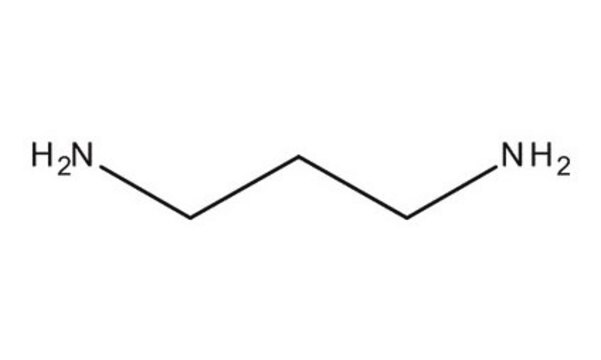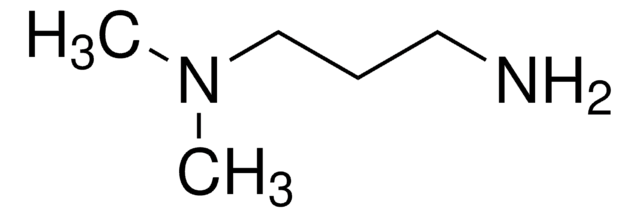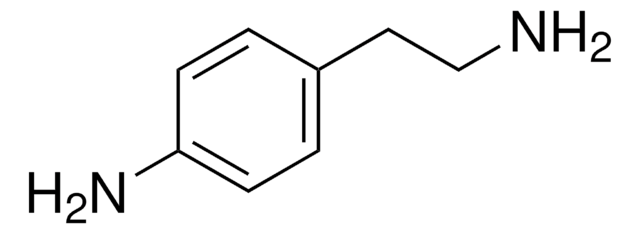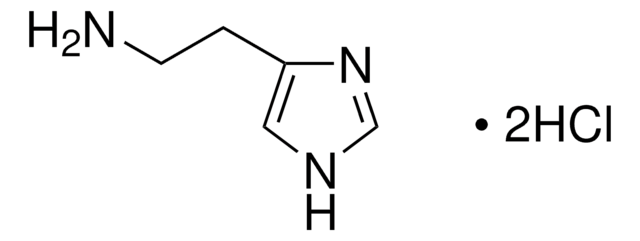D23807
1,3-Diaminopropane dihydrochloride
98%
Synonym(s):
1,3-Propanediamine, 1,3-Propanediamine dihydrochloride
About This Item
Recommended Products
Assay
98%
form
powder
mp
246-250 °C (lit.)
SMILES string
Cl[H].Cl[H].NCCCN
InChI
1S/C3H10N2.2ClH/c4-2-1-3-5;;/h1-5H2;2*1H
InChI key
HYOCSVGEQMCOGE-UHFFFAOYSA-N
Looking for similar products? Visit Product Comparison Guide
Application
- Tetradentate bis-phosphine ligands (P(2)N(2) and P(2)S(2)) and their Rh(III), Ni(II) and (105)Rh complexes: X-ray crystal structures of trans-[RhCl(2)(L2)]PF(6), [Ni(L2)](PF(6))(2) and μ-O(2)SO(2)-[Ni(L5)](2)(PF(6))(2).: This study explores the synthesis and characterization of tetradentate bis-phosphine ligands and their complexes, demonstrating significant advancements in ligand design and potential applications in catalysis and medicinal chemistry (Cagnolini et al., 2011).
Signal Word
Danger
Hazard Statements
Precautionary Statements
Hazard Classifications
Acute Tox. 3 Dermal - Acute Tox. 3 Inhalation - Acute Tox. 3 Oral - Eye Irrit. 2 - Skin Irrit. 2 - STOT SE 3
Target Organs
Respiratory system
Storage Class Code
6.1C - Combustible acute toxic Cat.3 / toxic compounds or compounds which causing chronic effects
WGK
WGK 3
Flash Point(F)
Not applicable
Flash Point(C)
Not applicable
Regulatory Listings
Regulatory Listings are mainly provided for chemical products. Only limited information can be provided here for non-chemical products. No entry means none of the components are listed. It is the user’s obligation to ensure the safe and legal use of the product.
JAN Code
D23807-100G:
D23807-5G:
D23807-VAR:
D23807-BULK:
Certificates of Analysis (COA)
Search for Certificates of Analysis (COA) by entering the products Lot/Batch Number. Lot and Batch Numbers can be found on a product’s label following the words ‘Lot’ or ‘Batch’.
Already Own This Product?
Find documentation for the products that you have recently purchased in the Document Library.
Customers Also Viewed
Our team of scientists has experience in all areas of research including Life Science, Material Science, Chemical Synthesis, Chromatography, Analytical and many others.
Contact Technical Service













